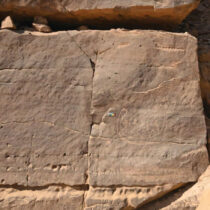Within the framework of the upcoming Rencontre Assyriologique International in Helsinki (RAI 69: 8-12 July 2024), the University of Helsinki is planning a workshop on “King- and Queenship in the Ancient Near East: Maintaining Relations with the Power Base.”
In preparation of the workshop proposal, indications of interest are invited by 23 November 2023.
Background
A key element for the success of political entities are the means and strategies employed by the leaders to maintain good relations with “the elites.” These include
local, regional, and imperial elites, members of the royal family, the non-royal court, the military, the clergy, and the administration, official and unofficial contacts to the king, queen and other members of the royal family, men, women, and persons of non-binary gender. Equally, the mechanisms employed for keeping the persons and institutions in power are diverse, depending on the general and specific socio-cultural, socio-economic, and socio-political context.
The workshop focuses on the empires in the 1st millennium BCE that centered in or encompassed major areas of ancient West Asia and Egypt: the Neo-Assyrian,
Neo-Babylonian, Teispid-Achaemenid, Seleucid, Ptolemaic, Parthian, and early Roman empires. Comparative papers from other time periods and areas
are also welcome, if the transfer potential is made obvious.
Key questions:
1. Who are the key persons and groups that maintained king-/queenship – locally, regionally, and on an imperial level? Is their power institutionalized or based on an “invisible hierarchy”? How did they gain, maintain, and lose their position of power?
Who was instrumental in setting up and maintaining the mechanism of interaction and support, and who benefited how?
2. Which strategies and mechanisms were employed by the royals and the “elites”?
How generic or specific were the royal and group strategies? How was this interaction regulated and exploited?
3. Can one see distinct qualitative differences in the workings of more local vs. imperial entities? What is at the roots of these differences?
4. How can we elicit this information from the available sources?
Paper format
Especially invited are papers that take a case-study based comparative approach: e.g., on the power base and the means of interacting with them for the king vs the queen, between different towns, between different kinds of power bases (e.g., clergy vs. administrative leaders), or between different empires.
Organizers strongly encourage collaborative papers to heighten the scope of contexts studied comparatively. Interest in such a collaboration should be indicated.
Organizers would gladly help with finding suitable cooperation partners and feasible formats.
Organizers:
Melanie Wasmuth (Universities of Helsinki & Basel), [email protected]
Jessica Nitschke (Stellenbosch University), [email protected]
Emanuel Pfoh (University of Helsinki & Consejo Nacional de Investigaciones Científicas y Técnicas Argentina), [email protected]





